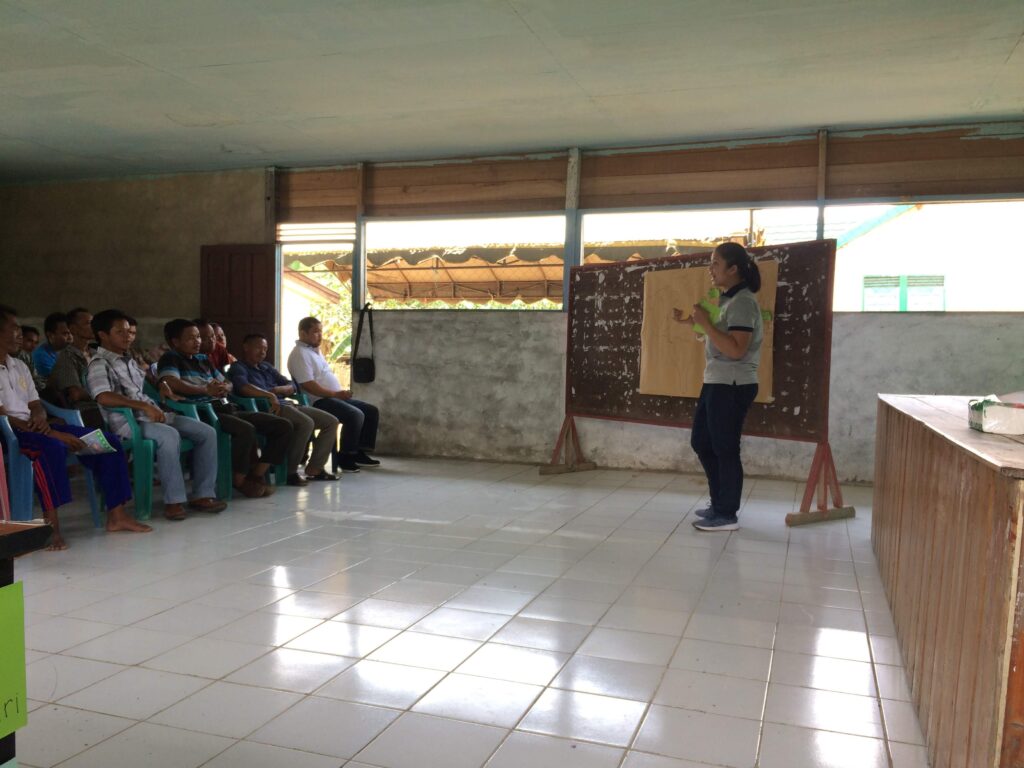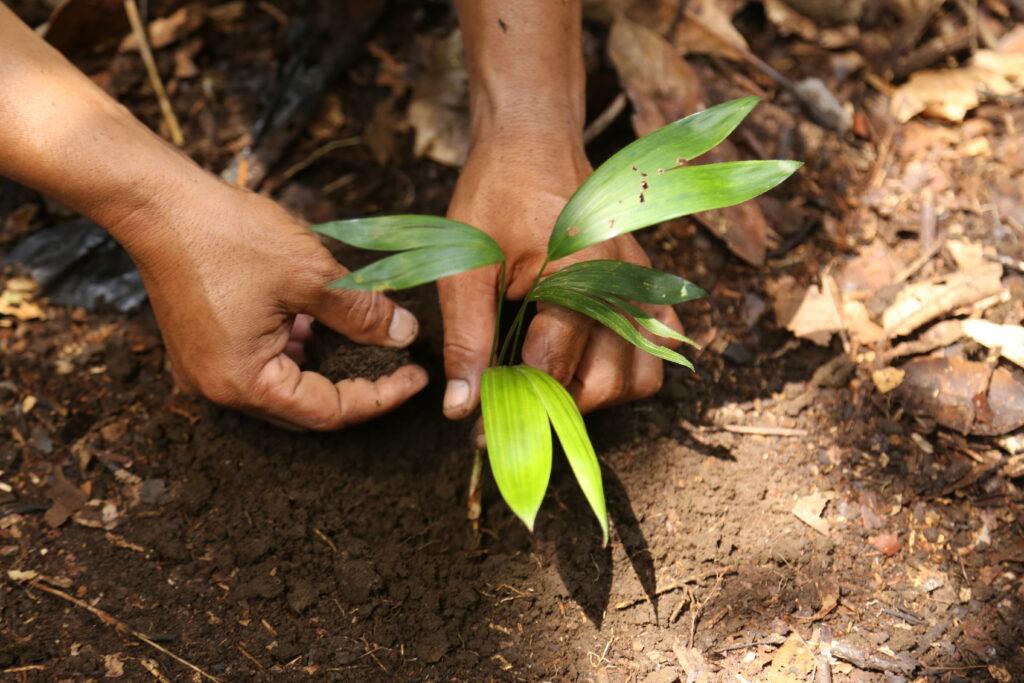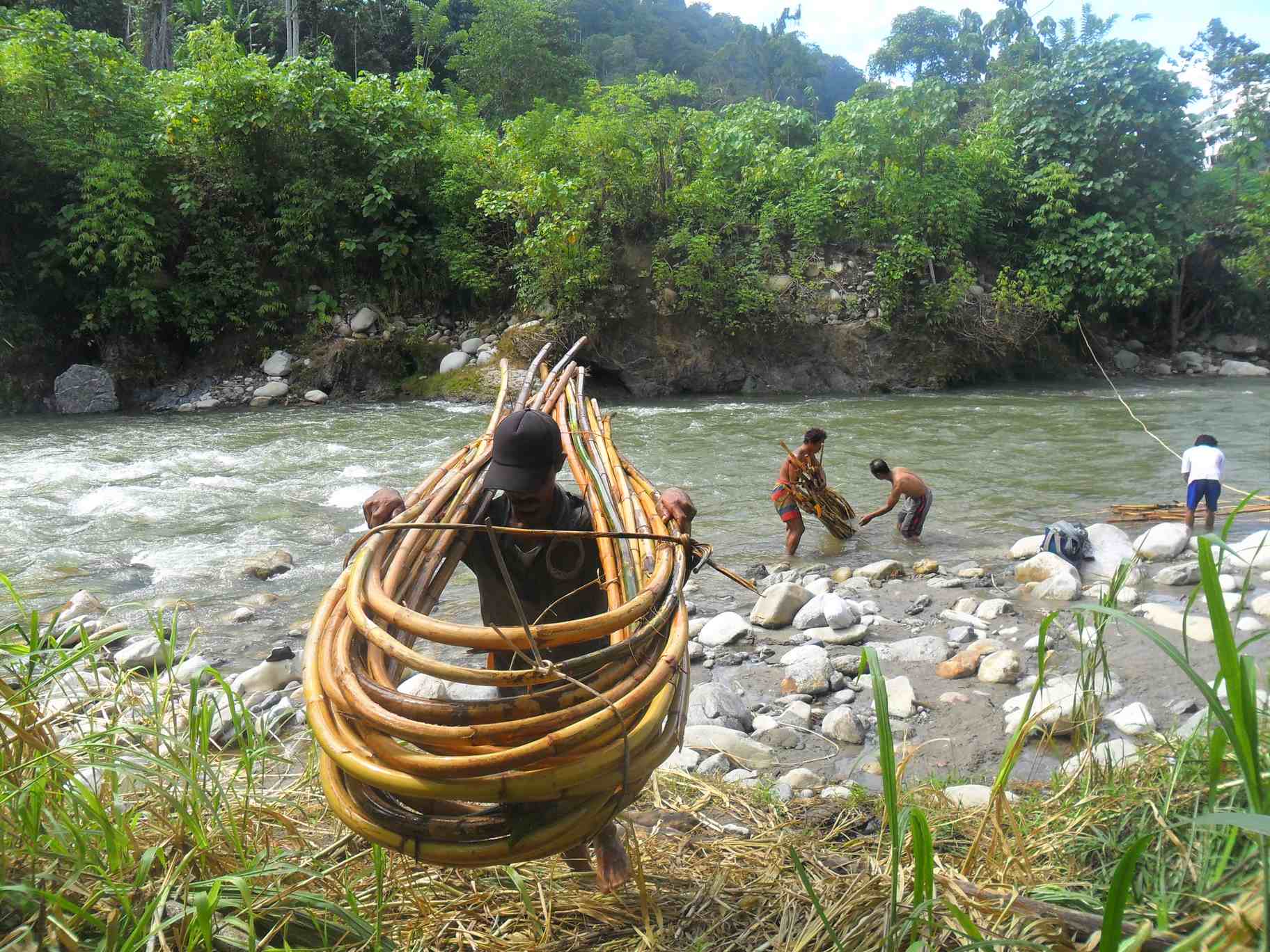Offering rattan farmers a way to get a fair price for their products while ensuring sustainability, a new participatory certification mechanism was launched in a virtual event last March 31.
Called the Participatory Guarantee System Rotan Lestari (PGS ROLES), it is a participatory certification mechanism which ensures legality, traceability, sustainability, and social welfare for rattan producers. This certification mechanism applies an appropriate, effective and cost-efficient scheme for rattan harvested by community-based farmer producers.
Rotan lestari in Bahasa Indonesia means “sustainable rattan.”
In Southeast Asia, farmers and especially indigenous peoples harvest from the forest for their livelihood. Many forest-based communities harvest rattan, a climbing vine used by artisans for furniture, houseware, and fashion items.
“In the past, rattan harvesting was done in a haphazard and unsustainable manner. Through PGS ROLES, the community members are taught good rattan harvesting practices, including how to make profit from selling quality raw rattan in the market,” said Rusdin, a rattan harvester from Namo village in Sigi, Central Sulawesi.
Harvesting rattan used to provide an important source of livelihood for forest-based communities in Indonesia. However, government policies such as the Ministry of Trade Regulation 35/2011 on rattan exports and products as well as other economic factors have kept the price of rattan cane low, forcing rattan farmers to abandon their gardens and forests for other sources of income.
“PGS ROLES is intended to assist the farmers and rattan importers in differentiating their sustainable products from that of others,” said Rasdi Wangsa, head of the PGS ROLES National Council.
The labeling scheme will help companies and farmers increase credibility and marketing values, thus resulting in the conservation of forests and increased benefits for rattan producers.
“PGS ROLES taught us how to harvest sustainably, like how we should avoid cutting down trees when harvesting rattan and to take care not to harm seedlings or harvest the young rattan. We only harvest from designated blocks and apply a rotation system agreed upon by the famers, said Safir, another rattan harvester from Namo village.

PGS ROLES is the result of a decade-long collaboration between civil society organizations, government representatives, rattan producers and artisans to ensure that rattan is sustainably harvested while the farmers are offered a fair price to incentivize them to keep forests intact. PGS ROLES was initiated by various organizations in 2012 including The Non-Timber Forest Products Exchange Programme – (NTFP-EP) Indonesia, the Indonesian Organic Alliance (AOI), and SETARA in cooperation with farmer groups, rattan artisans and government bodies. It has already developed standards for producers and for chain of custody processes, which have been tested in several provinces and islands across Indonesia.
Interested producers and private sector parties that wish to be certified through PGS ROLES will complete a self-assessment process against the relevant standards. Applicants must adjust their systems and processes to meet the standards before the actual audit.
If no district or provincial PGS ROLES unit exists in the area being applied for, the National PGS Council will assist in establishing one. This local PGS ROLES unit, composed of sectors from the government, civil society, producer groups and others, works to educate and coordinate local audit processes. Separate individuals will be in charge of training local producer applicants from those supervising inspections.
“This certification scheme is much more affordable for farmers and other trade partners. It empowers local communities by recognizing their knowledge on rattan resources through peer inspections while ensuring robust and regular measures of monitoring,” said Wangsa.

Once the applicant is ready to be audited, a local inspector is identified by the local PGS unit. This local-level audit is done in parallel with the chain of custody audit if relevant to the case. The results are then submitted to the PGS ROLES National Council for deliberation, and a certificate is granted if the results are favorable.
To kick off the global launch of PGS ROLES, a sustainable rattan certificate was awarded to Van der Sar Import, a Dutch importer for pots, vases and other sustainable products, during the March 31 launch event.
“We are very happy we work with PGS ROLES as they have much knowledge of sustainable rattan production in the rainforests. Through the audits we learned the good points and weaknesses in our organization,” said owner Gerard Van der Sar.
Van der Sar added that aside from the certification, the audit report also helped improve the quality of their organization.
“We hope that PGS ROLES can continue to assist us to prevent unsustainable harvesting of rattan in our area and in finding markets that care for the environment too” said Safir.
For more information, please contact the PGS ROLES Secretariat ℅ NTFP-EP Indonesia info.indonesia@ntfp.org




